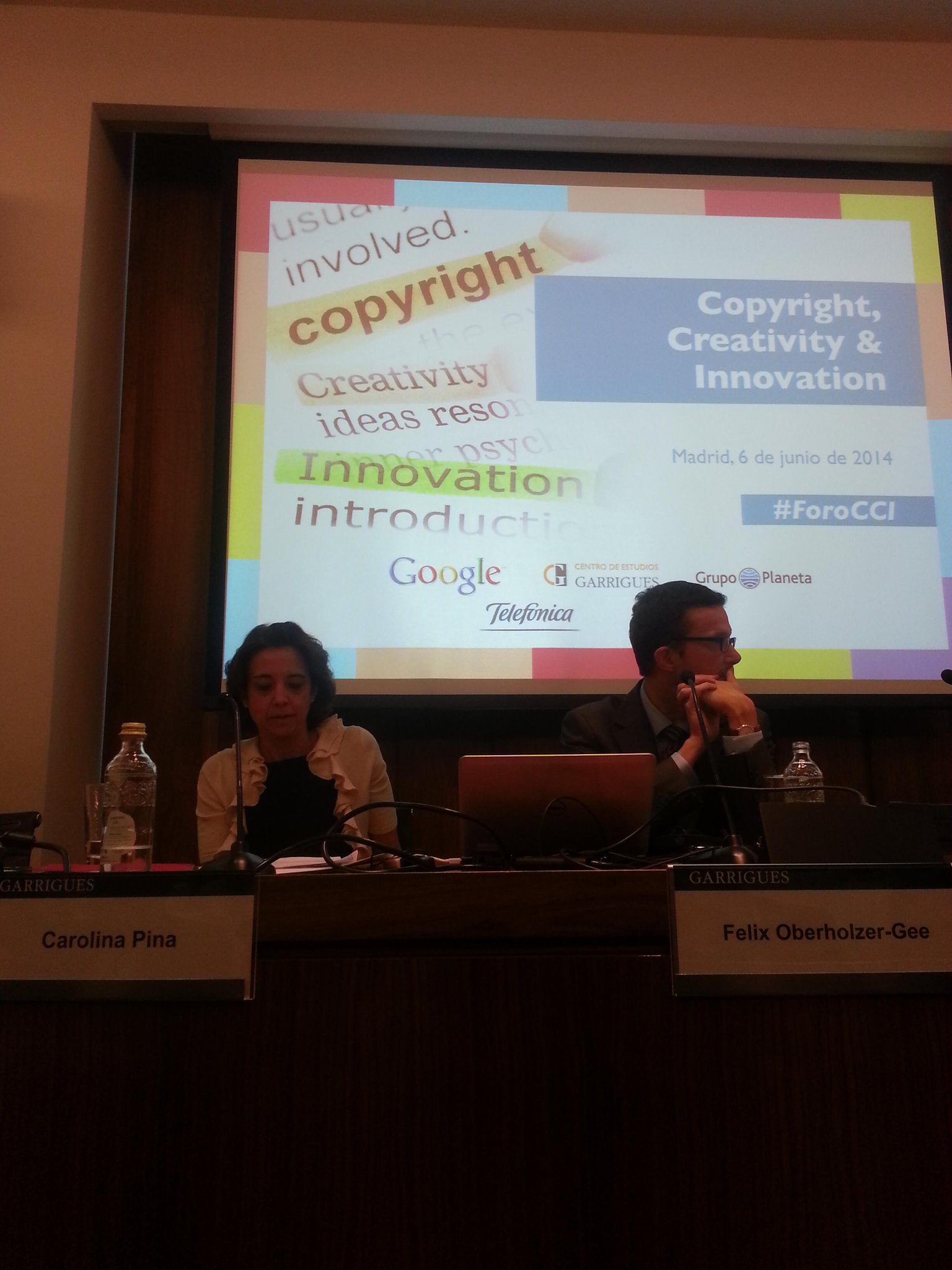 |
Last Friday Centro de Estudios Garrigues held a seminar organized by the Copyright, Creativity and Innovation (C2i) Forum, a promising initiative promoted by leading companies such as Google, BRB Internacional, Grupo Planeta and Telefónica.
Keynote speaker was Harvard professor FelixOberholzer-Gee. His speech regarding copyright and innovation was simply brilliant and
completely different than the ones we use to listen around here.
Felix´s presentation was all about how do
content from media corporations gets noticed and how do they get paid. Companies
tend to focus on monetization and his advice is to turn its attention to the discovery
part.
He started with New York Times to illustrate
how they managed the transition to the online world. With revenues coming from
printed copies subscription declining over the years, NYT execs decided to
offer an online subscription to their loyal customer with premium content and
provide free of charge access to the rest of their content with a limitation of
20 pieces of information per user unless you are coming from a link in Facebook,
Google or Twitter.
This experience showed the significant
willingness to pay of a certain amount of people even in an environment where
virtually every single content may be enjoyed for free. Additionally, he mentioned
the need to have a complete vision of company´s P&L statement in an
all-digital world which means, among other things not focus only on the
revenues but also on the cost side because many of the times this is the part
where more can be achieved.
Next example was Getty and their new policy to
give away more than 40 million images with certain limitations, notably to use
the tool they provide.
Going back to the media sector, Felix remarked
the phenomenal success of Buzzfeed, a “low brand content” site where everything
is designed to share the content: reporters are encouraged to create viral
stories for users to pass them along to their friends. The idea is to pull traffic
to their web and monetize via advertising. This kind of sites are exploring
native advertising as a way to shift customer´s perception of the brand and
also shared advertising which has proven to be successful.
Regarding mass collaboration, and apart from Wikipedia
which is the obvious example, Felix quoted Threadless, the online community of artists
of T-shirts, towels, art prints, iphone cases, etc. where anybody can upload his/her
design and they are voted. The top ranked will be printed on clothing and sold online
and designer will receive money or gift cards.
Customer care was mentioned as well as an
activity likely to be effectively performed through mass collaboration.
Finally, he dedicated some minutes to explore mass
innovation and mentioned Amazon Mechanical Turk and Innocentive, as productive
ways of seizing collective talent to perform tasks or resolve complicated
math challenges.
As a conclusion, we may say that one size doesn´t
fit all and every company wishing to perform an optimal transition to an
all-digital world will have to find out their own business model.